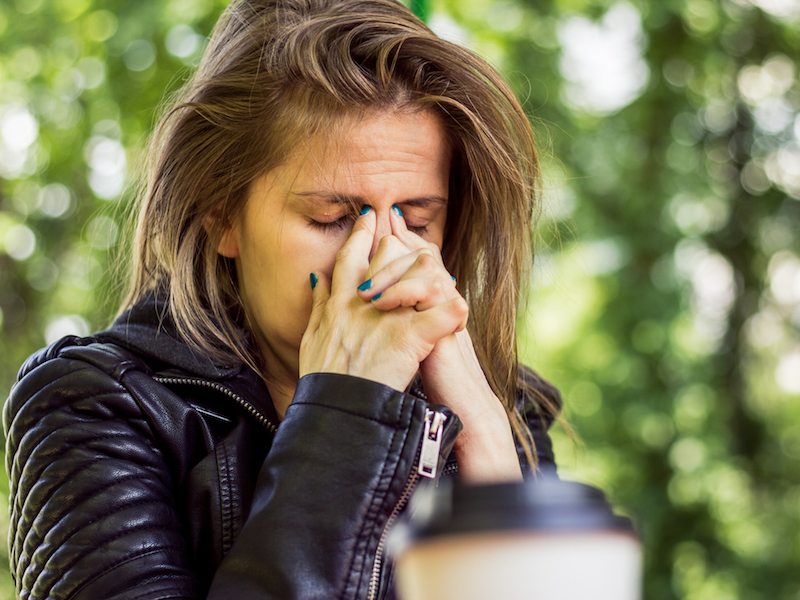
For weeks you’ve been sneezing and experiencing a stuffy nose. Because of the constant pressure inside your nose, it’s difficult to get any sleep, and you’re feeling exhausted (as well as a bit cranky). You know it isn’t a cold, as that would have gone away days ago.
That leaves a few other possibilities – like allergies or a sinus infection. But both of these conditions can have similar symptoms so which one is it?
Common Symptoms of Allergies and Sinus Infections
Generally, sinus infections aren’t contagious. They happen because something causes swelling in your sinuses such as a cold or similar bug. When your sinuses are swollen, mucus and fluids accumulate and often lead to a sinus infection. The sinus infection itself can bring about additional inflammation, meaning symptoms of this particular condition can endure for quite a while.
Allergies, however, are caused by exposure to an allergen like dust, pollen, or pet dander. Whatever you might be allergic to is misidentified by your body as an invasive adversary – and your immune system defenses kick into gear as a reaction. As your body tries to clear away the allergen it makes you sneeze and sniffle.
The symptoms of allergies and a sinus infection have like symptoms in spite of the very different causes.
Here are some of those symptoms:
- Headaches
- A runny or stuffy nose
- Fatigue
- Sneezing
Symptoms only related to allergies include red eyes, itchy eyes, and wheezing.
Symptoms only linked to sinus infections include thick mucus with a defined color to it, pressure-related headaches (frequently with a toothache), post-nasal drip, feeling as if your face is in pain or swollen, fever, and bad breath.
It’s a good idea to come in and see us if you’re uncertain if you have a sinus infection or whether you’re experiencing allergies.
It will be a smart plan to pay attention to when your symptoms appear when you’re attempting to figure out where your sneezes are coming from. A sinus infection will typically progress and decline over time – but on an hour by hour basis, the symptoms will probably be relatively consistent. That won’t always be true for allergies which are usually in response to the presence of an allergen.
It will be a strong signal that you’re dealing with allergies if your sneezing or runny nose gets worse when you do specific tasks like gardening or cleaning. Likewise, if you happen to get a stuffy nose around the same time each year, that’s more verification you’re experiencing seasonal allergies. Of course, allergies can also trigger a sinus infection and you should get it checked out if your symptoms don’t resolve.
Treatments for a sinus infection might include a prescription for steroids or a course of antibiotics. Treatment for allergies, on the other hand, could mean taking over-the-counter antihistamines. Your body’s own immune system might eventually resolve a sinus infection. It can be more difficult to treat allergies.
Surgery to address structural issues in your nose (such as a deviated septum or nasal polyps) might be needed if you are continually getting sinus infections.
It’s Up to Your Doctor
Self diagnoses doesn’t work. If you have persistent sinus pressure or pain, or persistent congestion, call us.